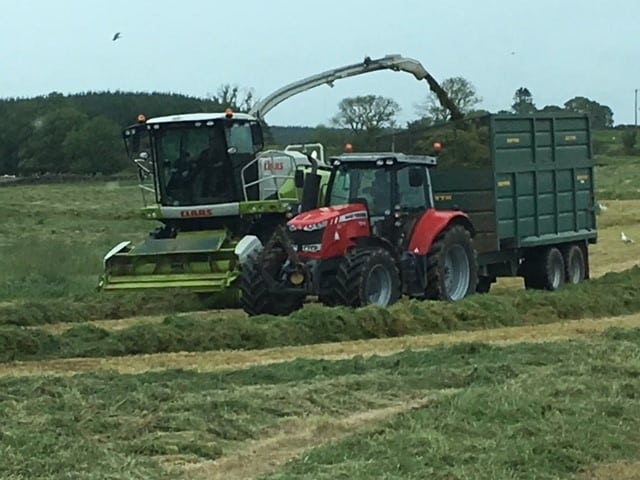The UK Chancellor has today confirmed nearly £3 billion of funding for 2020 to support farmers once the UK leaves the EU.
- this cash injection will maintain the level of funding for Direct Payments at the same rate as last year
- this will provide certainty for farmers, giving them confidence for next year
The Chancellor has today (Monday 30 December) given a welcome boost to UK farmers and rural communities by announcing nearly £3 billion of funding for 2020.
Sajid Javid confirmed the cash will be used to support farmers once the UK leaves the EU next year, allowing them to plan for the future, sow their crops and care for their livestock with confidence.
The UK will leave the Common Agricultural Policy (CAP) Direct Payments scheme, which supports farmers across Europe with subsidies in 2020. This will be replaced by a new system based on public money for public goods.
The cash injection will allow the funding for Direct Payments for 2020 to continue at the same level as 2019 and supplement the remaining EU funding that farmers will receive for development projects until 2023 at the latest. We will guarantee the current annual budget to farmers in every year of the Parliament.
It is in addition to the £206.6 million of funding awarded since Spending Round to support the farming sector in Scotland and Wales.
Chancellor of the Exchequer, Sajid Javid, said:
When we leave the EU and are freed from the Common Agricultural Policy, we will be able to support our vital rural communities – who are a cornerstone of life in the UK – with a fairer and less bureaucratic system.
Farmers can enter the New Year with confidence that they have our backing and will be able to thrive after Brexit.
Environment Secretary, Theresa Villiers, said:
Outside the EU we will have a simpler, fairer funding system – one that rewards farmers for enhancing our environment and safeguarding our high animal welfare standards.
We are committed to making sure our rural communities feel the benefits of Brexit and will ensure our farmers get a better deal.
The CAP is an EU policy that provides financial support to farmers in Member States. The Direct Payments scheme forms the majority of spending under the CAP and provides subsidies to farmers based on the area of land under management.
The funding announced today will be available from late 2020, as in previous years.
The UK Government will therefore provide £2.852 billion of support, topping up the remaining EU funding, and matching the total funding for Direct Payment available for 2019.
This will provide certainty for the rural economy.
The funding is spread across two financial years. The allocations for each nation of the UK for 2020/21 are:
- £1,751 million for the Department for the Environment, Food and Rural Affairs
- £449 million for the Scottish Government
- £231 million for the Welsh Government
- £279 million for the Northern Ireland administration
And for 2021/22:
- £92 million for the Department for the Environment, Food and Rural Affairs
- £24 million for the Scottish Government
- £12 million for the Welsh Government
- £15 million for the Northern Ireland administration
NFU Scotland’s President Andrew McCornick said: “With the UK set to leave the European Union and the Common Agricultural Policy on 31 January 2020, it is essential that the farming industry knows where it stands with regards direct payments.
“Farm businesses still rely upon these payments and, until we see a fairer redistribution of the share of the profit in the supply chain, direct support will remain important for almost all farmers and crofters.
“Government commitment to continue to fund direct payments when we leave the EU is welcome.
“When we meet Ministers and MPs at Westminster early in the New Year, we will seek further clarity on this announcement and press for a long term funding commitment to farming. We will also look for further measures that will help farmers secure a fairer share of returns from the supply chain.”






